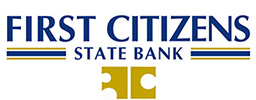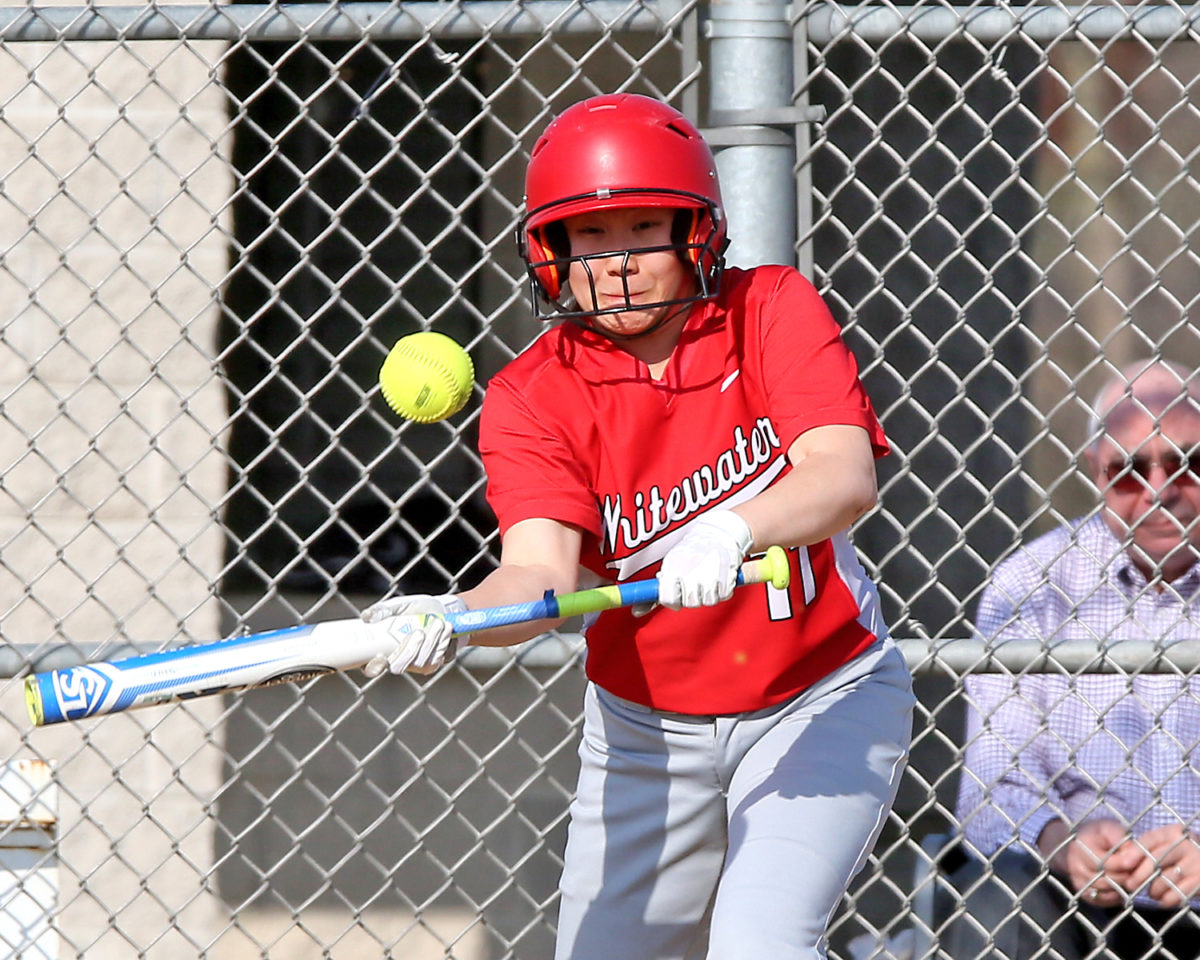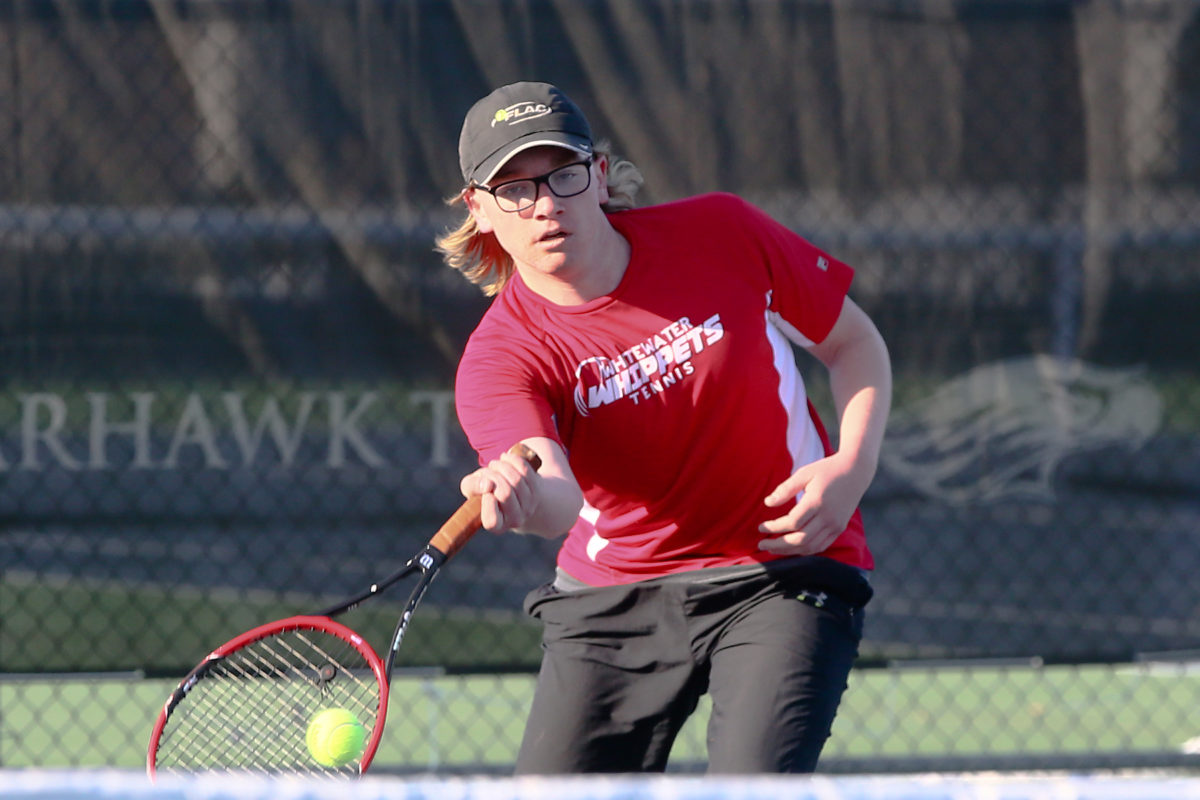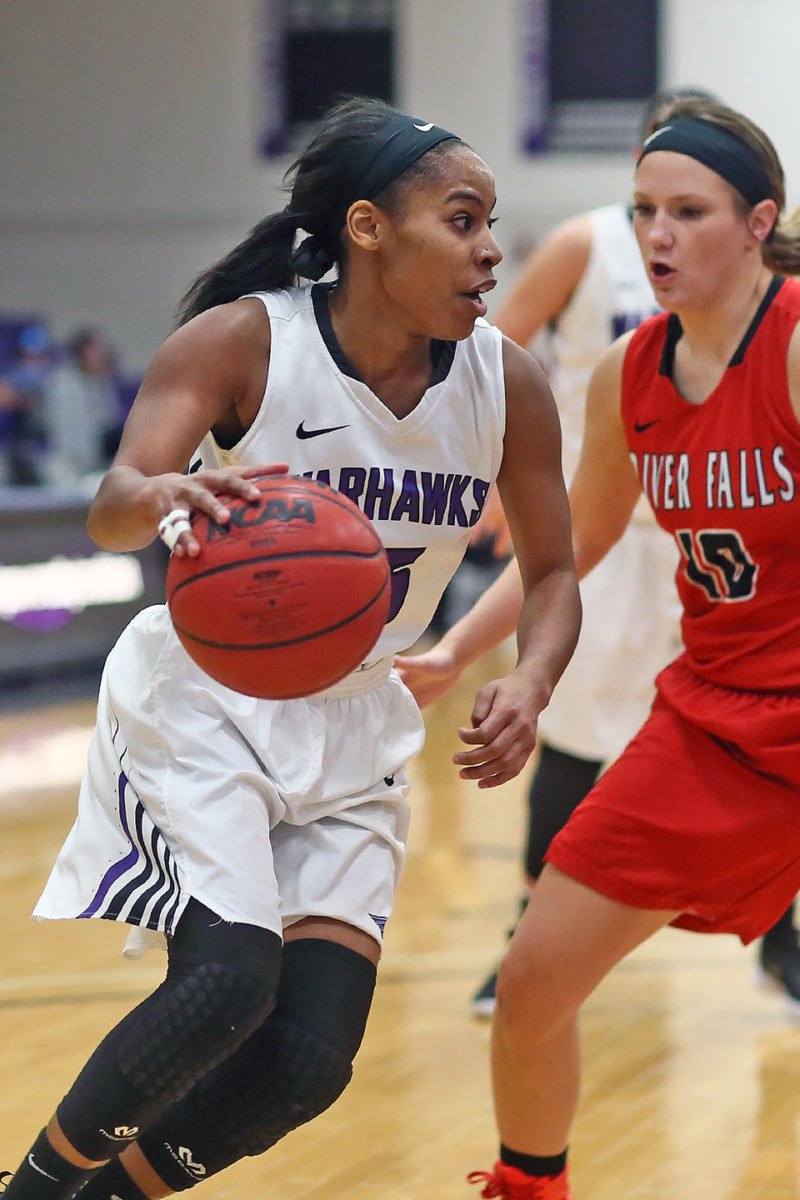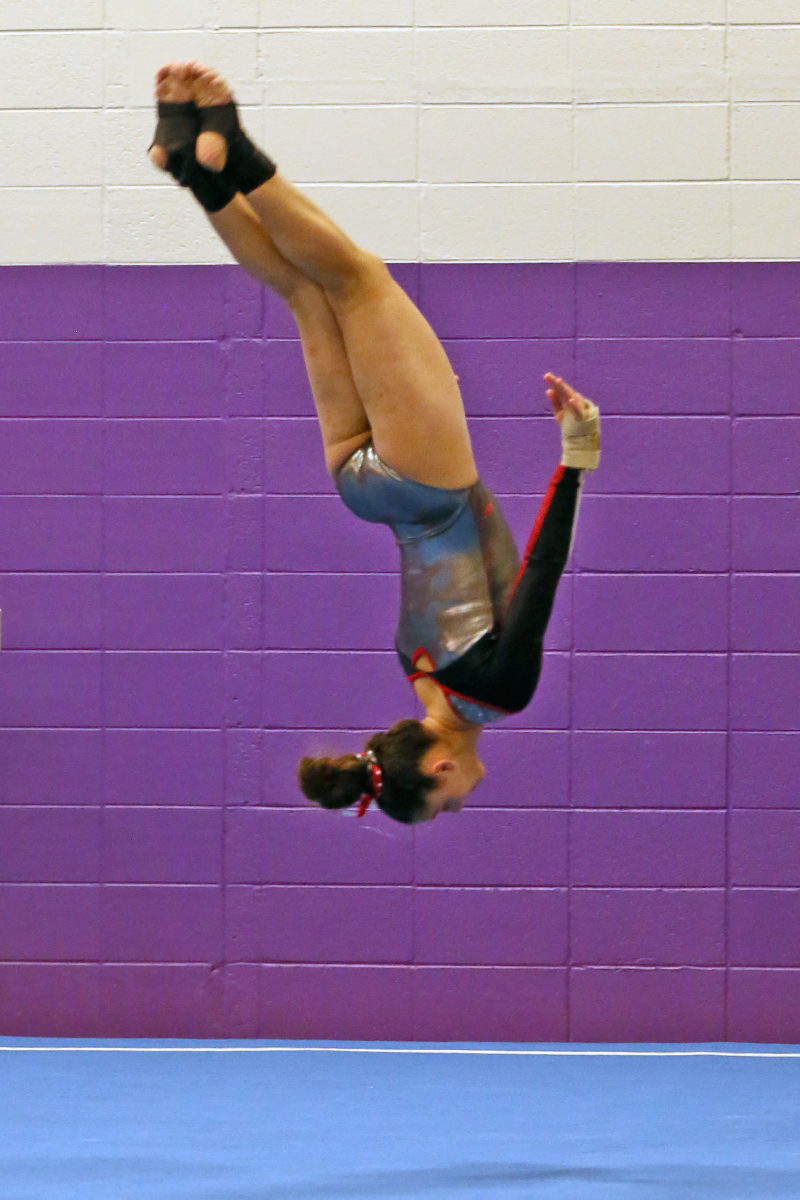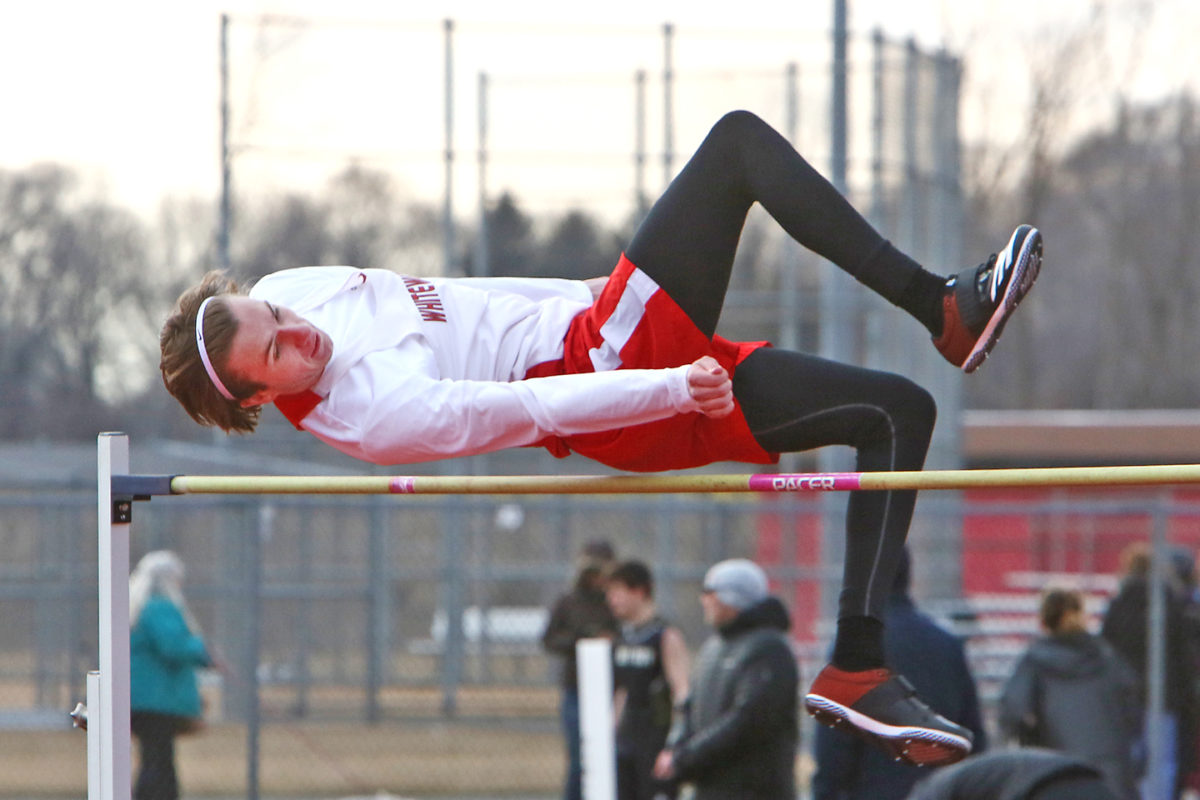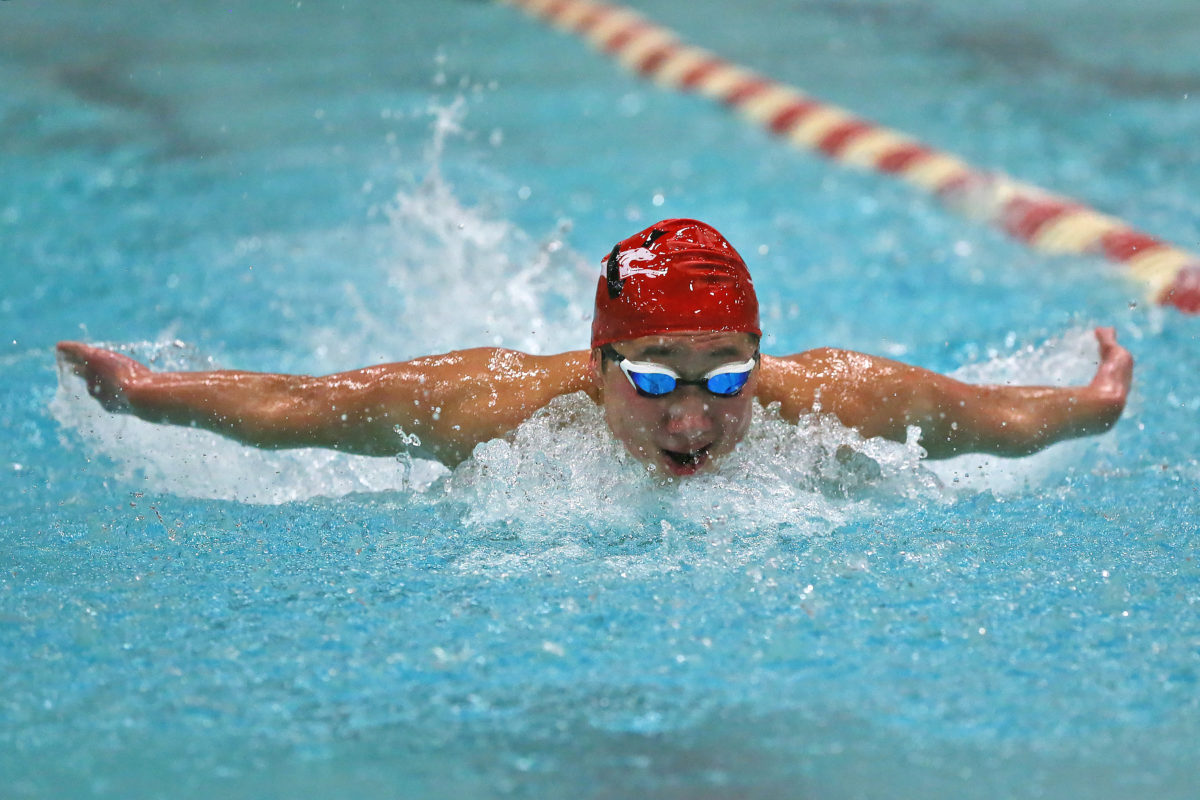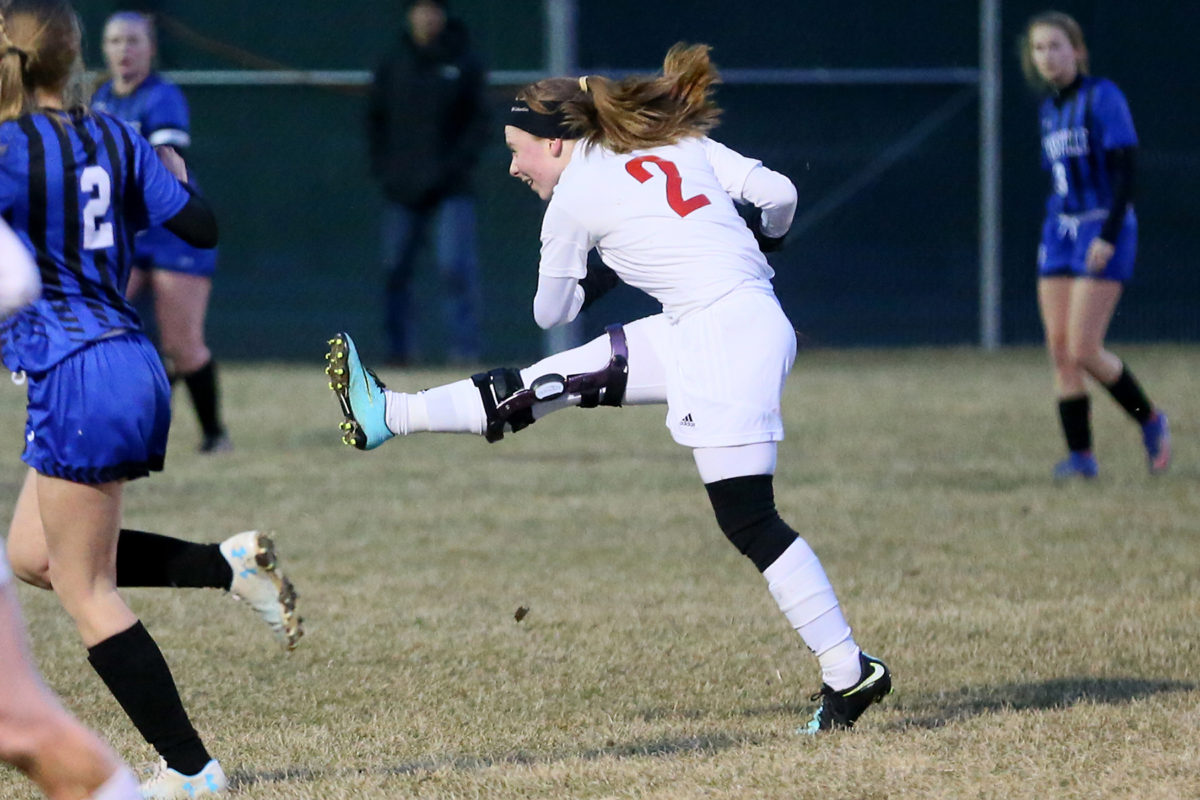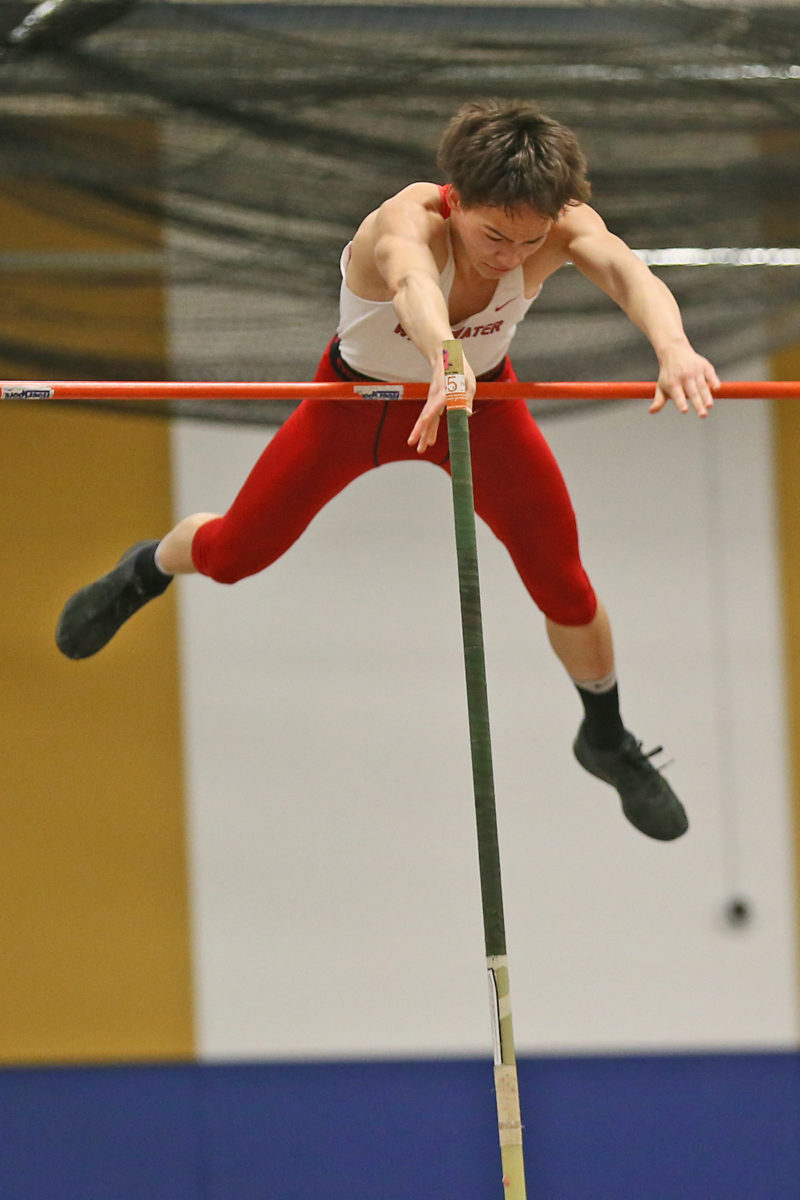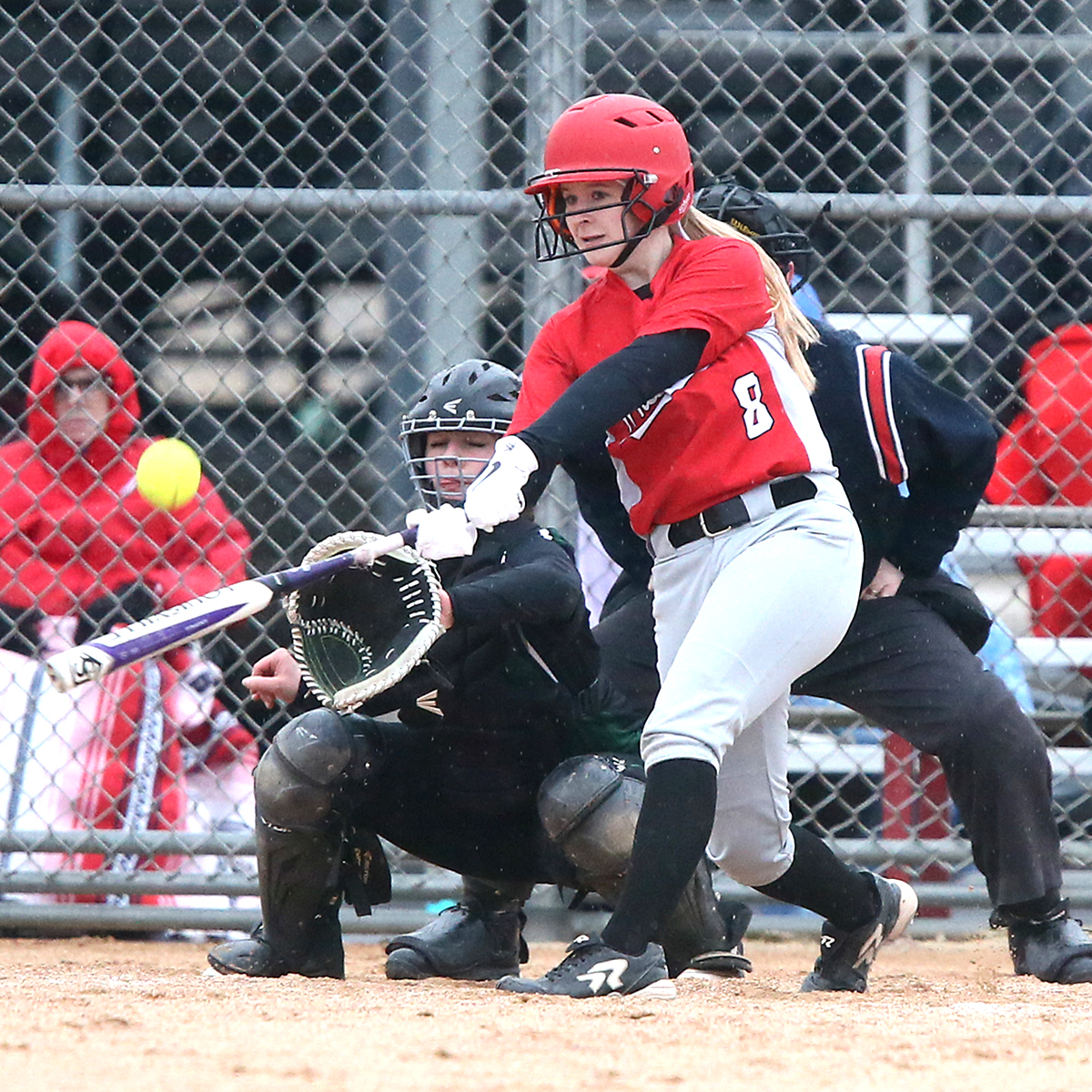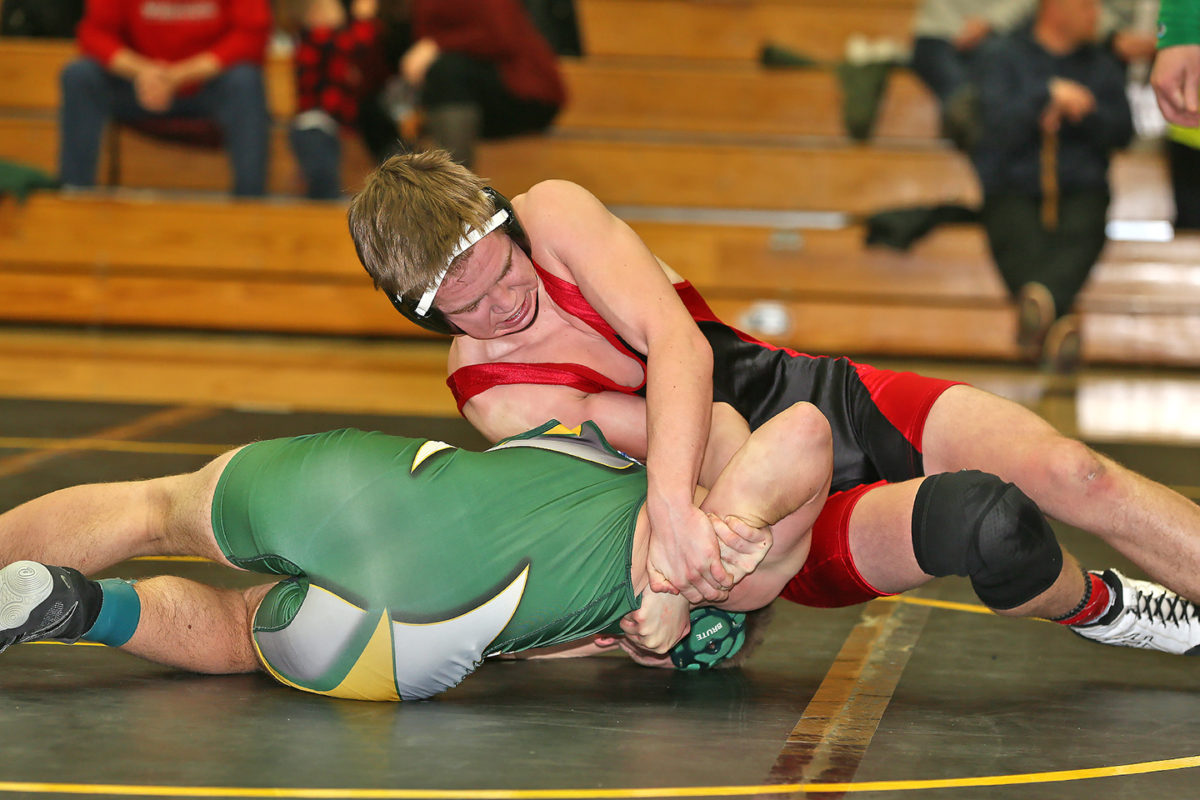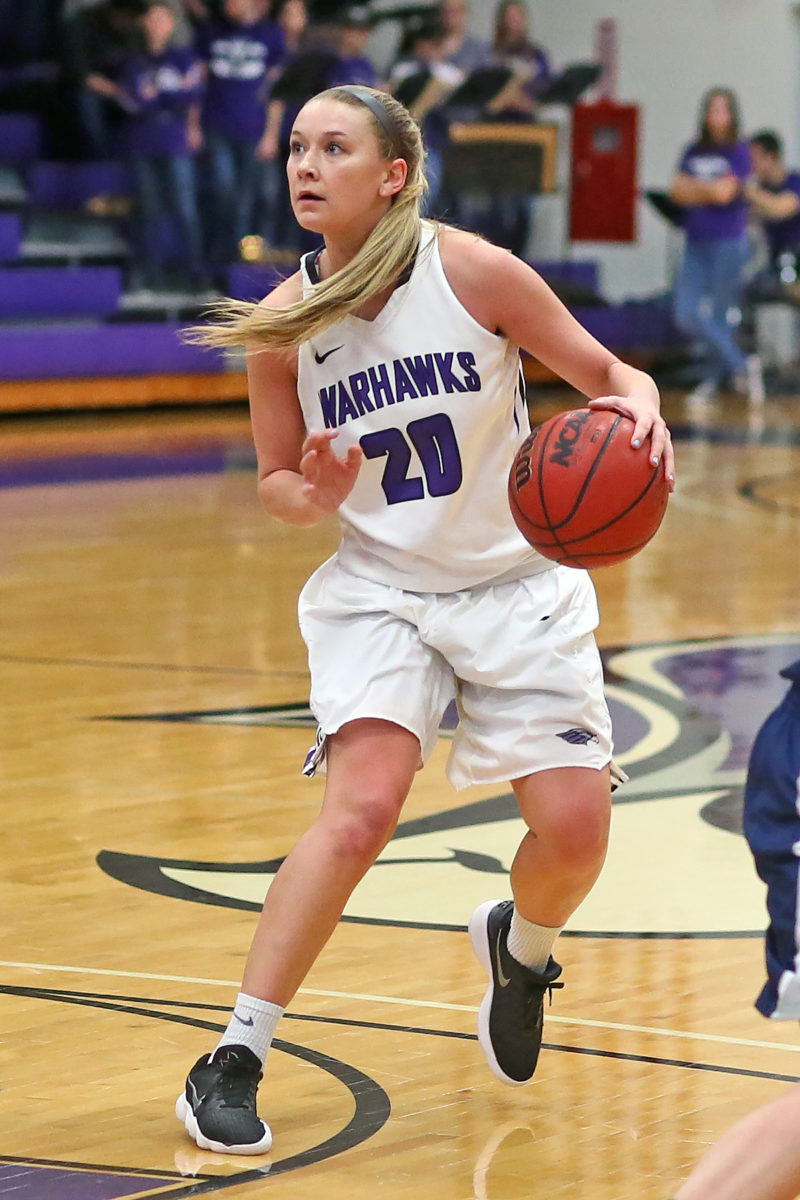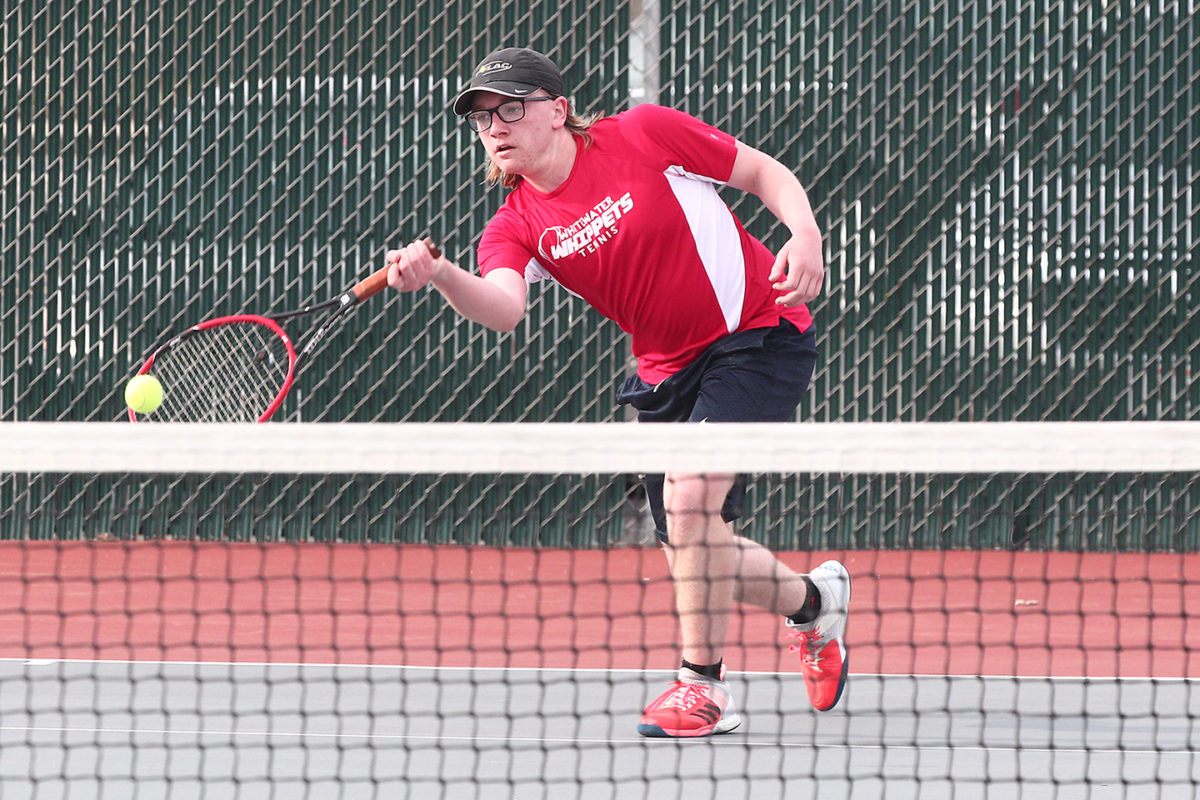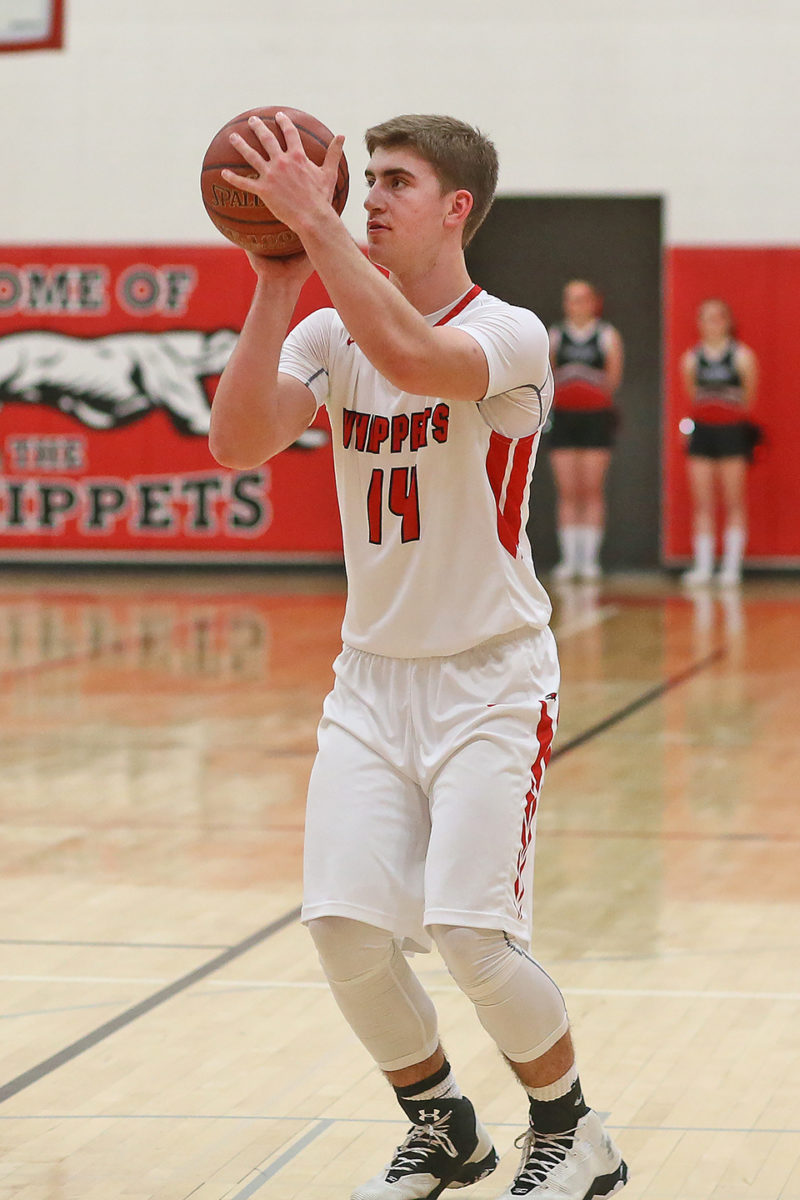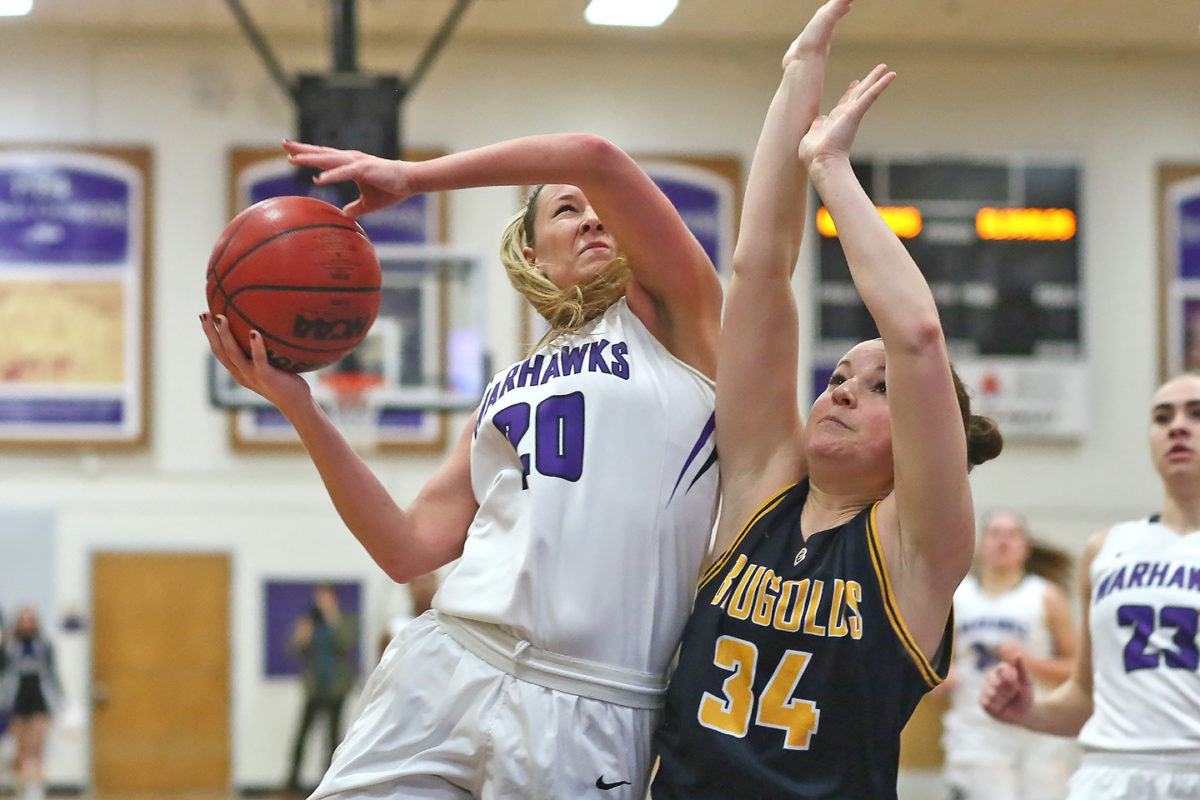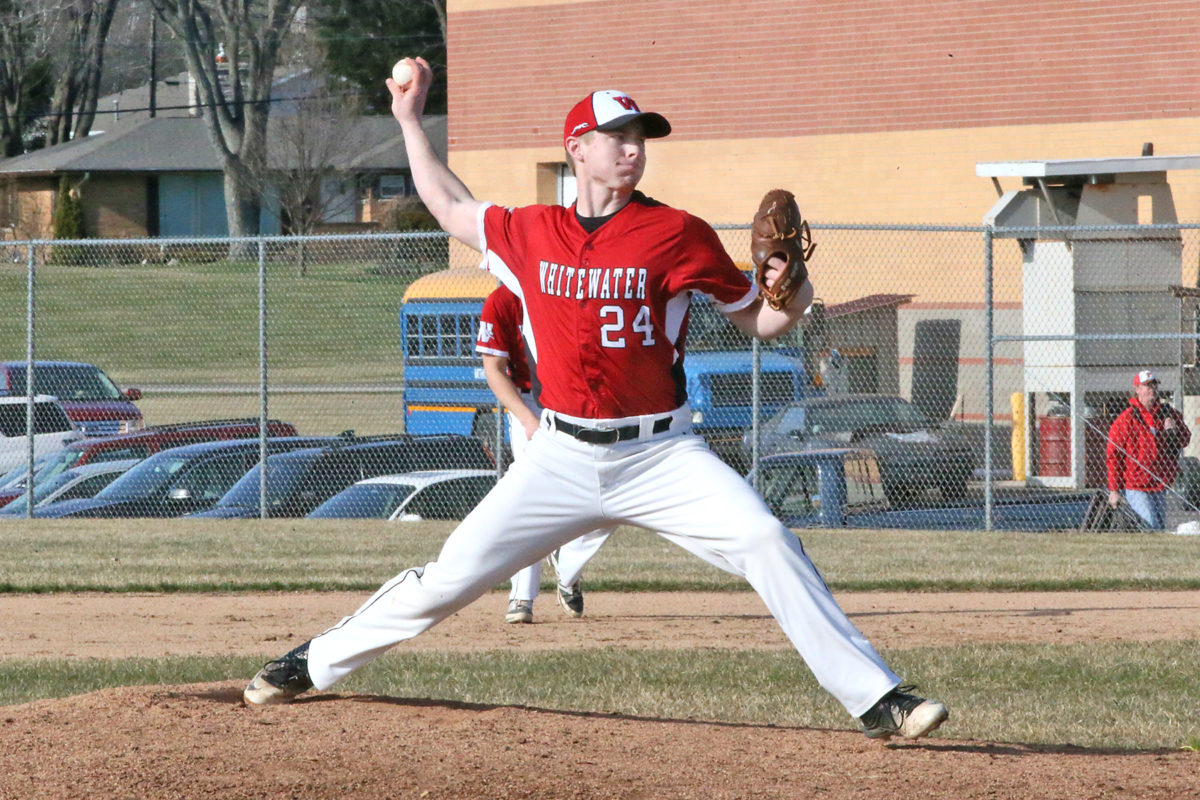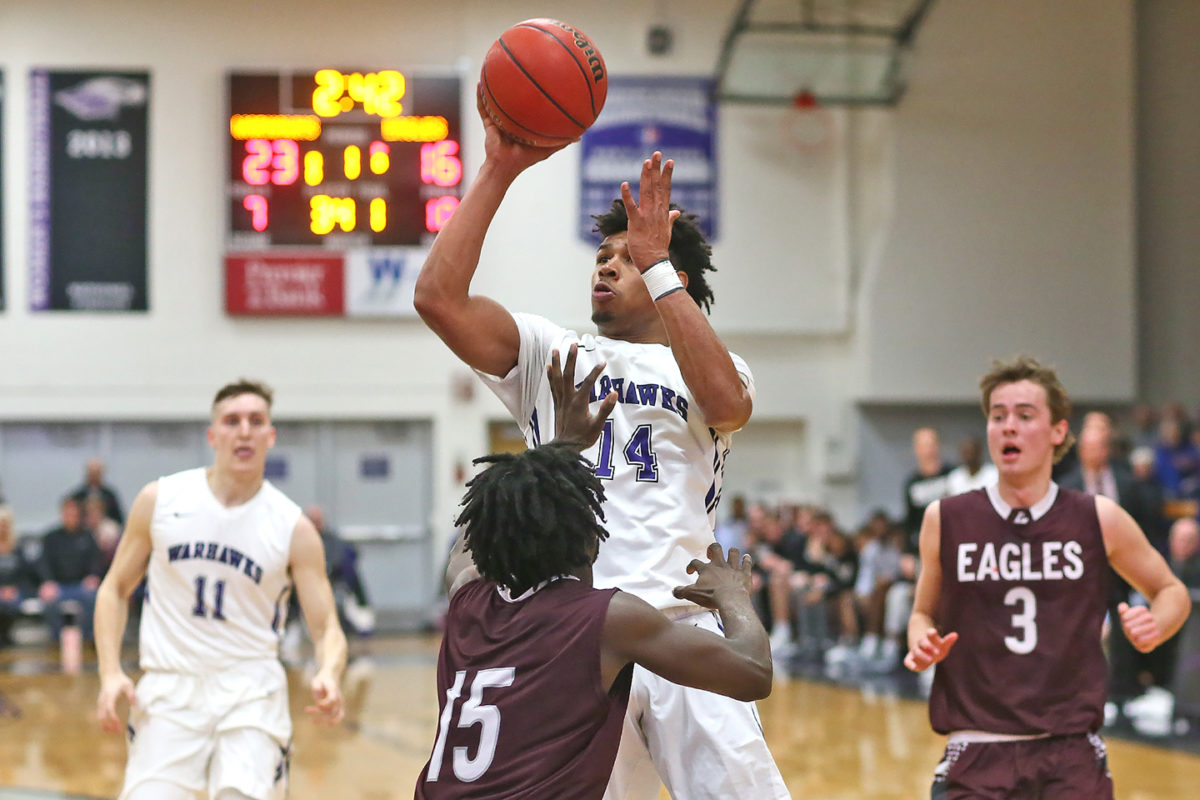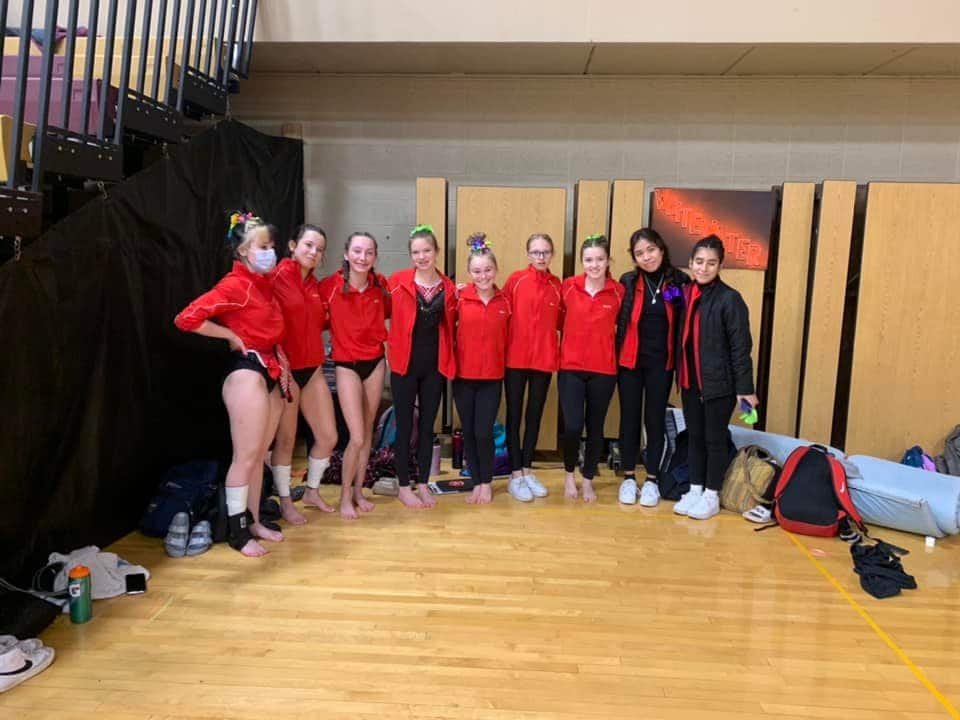The Whitewater Girls’ Basketball team played a conference game against Beloit Turner at home on Tuesday night, December 7. It was another exciting game down to the last seconds.
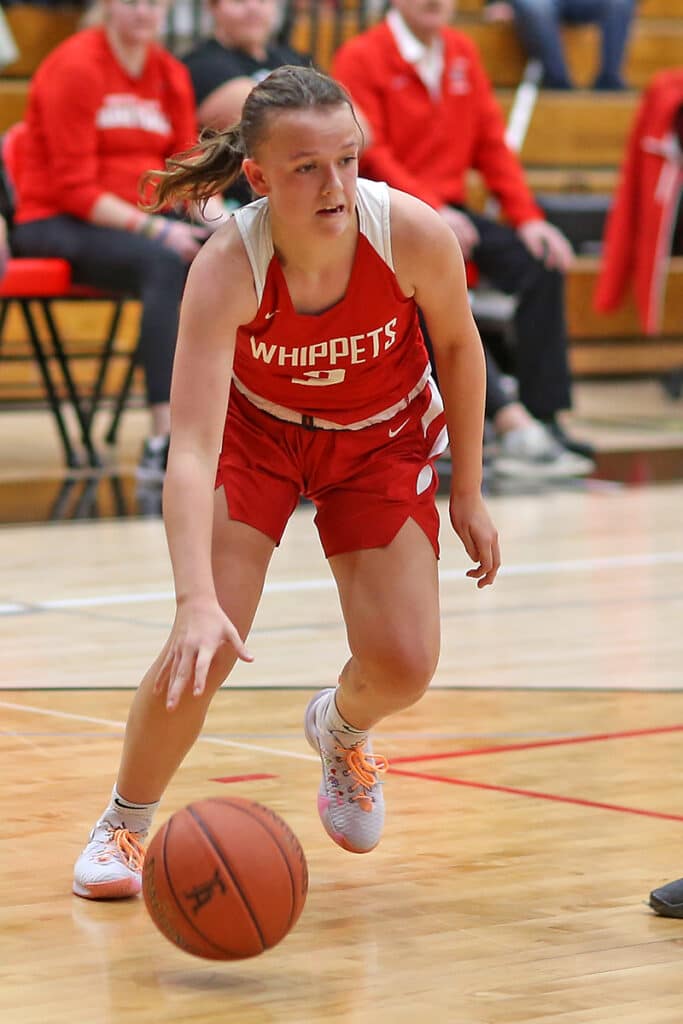
The Whippets were leading by one in the first half, 17-16. Coming out in the second half, only one point was scored in the first four minutes, by Turner, tying the game up 17-17. Turner then went on an 8-point scoring run in the next 2 minutes.
The Whippets battled back little by little, tying the game up 34-34 with 5 minutes remaining in the game. It was a battle to the end, but unfortunately, the Whippets came up short, losing 39-41.
Danielle DePorter led the Whippets in scoring with 12 points and added 1 assist and 2 steals. Gwen Truesdale had 11 points, 7 rebounds, 2 steals, 2 assists, and 1 block. Kindyl Kilar added 8 points, 7 rebounds, 2 assists, and 2 steals. Mayte Navejas had 5 points, 4 rebounds, and 2 steals.
The Whippets play at home against Jefferson this Friday and will be honoring parents for all their support!
Article Submitted by Kristen Lippens
Whitewater High School Head Girls’ Basketball Coach
klippens@wwusd.org
Photo Courtesy of Bob Mischka
The Whippet Gymnasts had an awesome first meet of the season last Friday, December 3, at Jefferson! Here are some highlights:
Halee Peters had a great performance, taking first place on beam (despite the tough competition) with an 8.75! She joined the 8.0 club on 2 other events as well, finishing 4th in the All-Around competition.
Brooklyn Griswold and Nola Coburn, both freshmen, showed lots of bravery and courage while competing high school gymnastics for the very first time! Nola did vault, beam, and was given a last-minute bar routine, all of which went very well. Brooklyn competed in bars, beam, and competed her new floor routine, remembering her choreography, and landing all of her tumbling passes.
Anna Ejnik came ready to go, also competing in the All-Around competition. She is a versatile gymnast and did very well with powerful tumbling and a confident beam routine.
Makayla Bazeley, a freshman, also performed very well for her first high school meet. She was confident in her dancing and floor routine, which is awesome to see in a first-year high school gymnast! Makayla competed in the All-Around and is definitely one to keep an eye on for the next 4 years!
Lexi Kuhnke stepped in right when we needed her, performing last-year’s floor routine on short notice. She did very well, including new tumbling passes. We can’t wait to see her compete more events in the near future!
Our next meet is this Saturday the 11th, at 10:00 a.m. at Janesville Craig. Go, Whippets!
Article and Photos Submitted by Shawnda Peters
Whitewater High School Head Gymnastics Coach
speters@wwusd.org
After going through last year without being able to participate in regular season tournaments, the Whitewater Wrestling Team was back in action on Saturday to mark the official start of the 2021-2022 campaign.
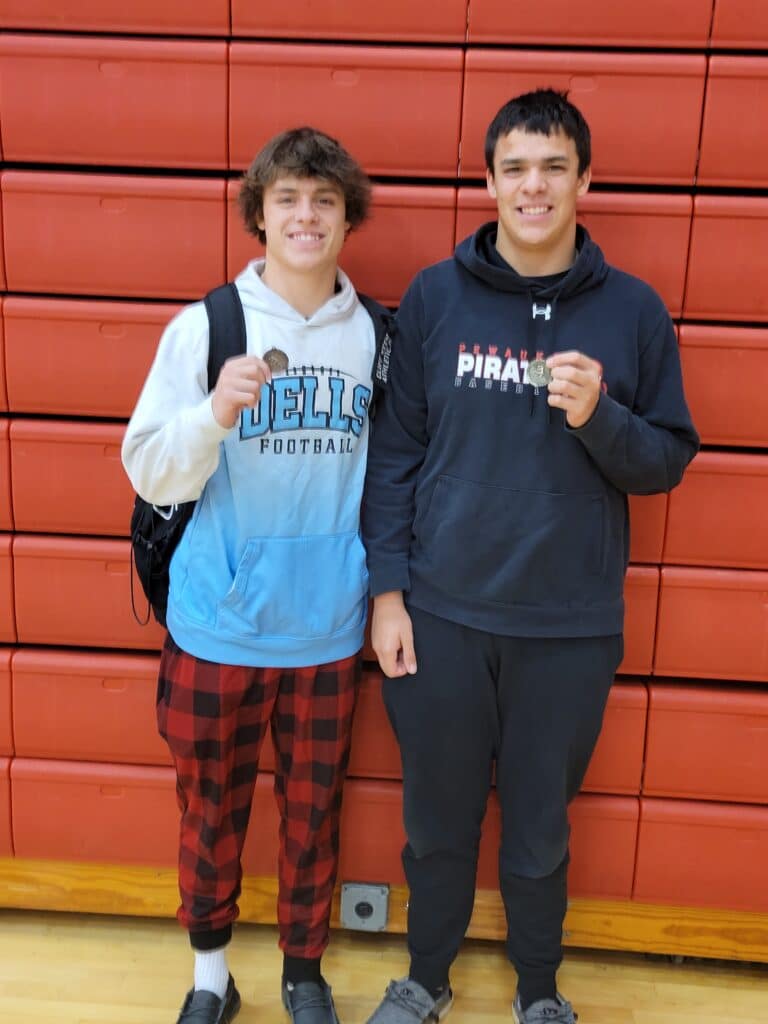
The DePorter Brothers 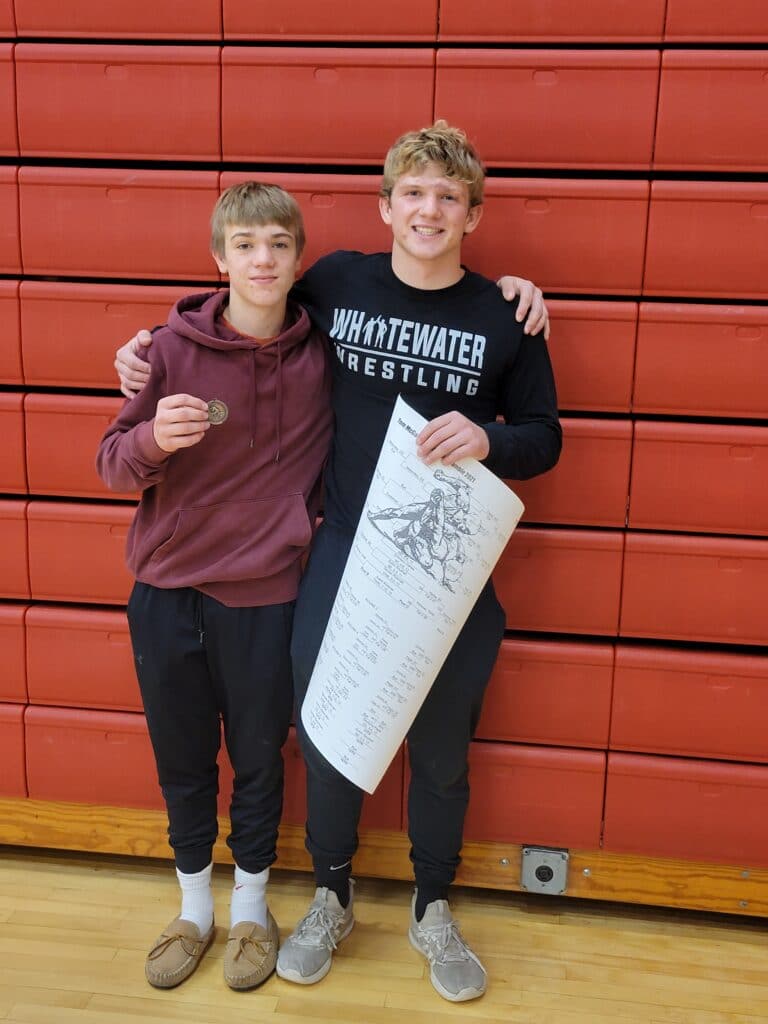
The Friend Brothers
The varsity team traveled to Watertown on Saturday to compete in the Watertown Tom McGarvie Invitational. This is a very competitive tournament, with 17 teams from all three divisions. Winning the team trophy was Winneconne, the returning Division 2 State Champion, and coming in Runner-up was Mineral Point, the returning Division 3 State Champion from a year ago. Whitewater wrestled well during the course of the day and finished in 7th place. This was a nice finish considering the level of competition at every weight class.
Leading the way for the Whippets was Carter Friend at 170 pounds. He finished the day 5-0 with some very strong matches along the way to his championship. This is the 2nd time Carter has won this tournament, winning it in 2019, the last time we competed in it.

Following Friend was Mason DePorter who wrestled very well on the day, finishing 4-1 and in 5th place. Mason had some very good matches and he showed his increase in strength and mobility in winning those matches.
Brother Marcus DePorter also finished 4-1 on the day. Marcus dropped his first match but then battled back with some very competitive matches. He showed grit in his victories throughout the day.
Next up were CJ Tomomitsu, Connor Friend, and Sebastian Cuellar Meza, who all went 3-2 on the day. CJ and Sebastian finished in 6th place, while Connor finished as consolation champion. These young men wrestled well, with Sebastian and Connor seeing their first ever varsity tournament and handling it very well. CJ came out each time with a fire in his eyes that he is going to be a force to reckon with. Even in his two losses he was very strong.
Also wrestling well but missing out on a medal were Cooper Hammond, Jesus Barajas, Mason Nobs, Hector Arnodo, Payton Lyon, Armando Villarreal, Leo Ortiz, and Scott Krebs.
The coaching staff was very pleased with the efforts of the team; however, there are always areas for improvement as we progress into the next week of practice. We were proud of the students as this is a very large tournament, and the coaching staff is quite busy, so the team did a great job helping each other out with mat assignments and support throughout the day!
The Whippets are next in action on Thursday night when they travel to Clinton for a dual meet and then again on Saturday, December 11th, when they host the 8th annual Whitewater Invitational. Wrestling will begin at approximately 9:15 a.m. at Whitewater High School.
Article and Photos Submitted by John Schimming
Whitewater High School Head Wrestling Coach
jschimming@wwusd.org
The Whippet Boys’ Swim Team traveled to Milton High School to compete in the Lieder Invitational on Saturday, December 4. The boys got to compete for the first time this season in individual events.

Tyler Arnett took a 4th place finish in the 200 Freestyle with a time of 2:07.20. Tyler went home with a 2nd place medal in the 500 Freestyle where he went a personal best time of 5:32.10. This time now puts him 6th all-time on the Whippet Top 10 List! Tyler also had some nice relay splits; in the 200 Freestyle Relay he anchored with a 25.67, and in the 400 Freestyle Relay he also anchored with a 1:01.30.
Jack Hefty put together some nice swims with an 8th place finish in the 50 Freestyle, going a 26.84, and a 6th place finish in the 100 Freestyle, with a time of 1:01.52. Jack swam another 50 and 100 Freestyle in the 200 and 400 Freestyle relays where he led off sitting right around his best time from his earlier swims.
Miles Nickelsburg followed along with teammate Jack, swimming in individual events of 50 Freestyle, going a 36.32, and 100 Freestyle, going 1:23.79. Miles also had a nice relay split in the 400 Freestyle Relay, going a 1:23.80.
Zach Tomomitsu swam the 200 Freestyle, where he went a 3:17.32 and already showed improvements from Tuesday’s meet with a 20 second drop! Zach also swam in the 100 Backstroke, the only swimmer who ventured out and swam something other than Freestyle. Zach also had a nice relay split in the 200 Freestyle Relay!
The boys will swim again on Tuesday, December 7th, at 5:30 p.m., at Delavan-Darien.
Article and Photo Courtesy of Sarah Reynolds
Whitewater High School Co-Head Boys’ Swim Coach
sreynolds@wwusd.org

